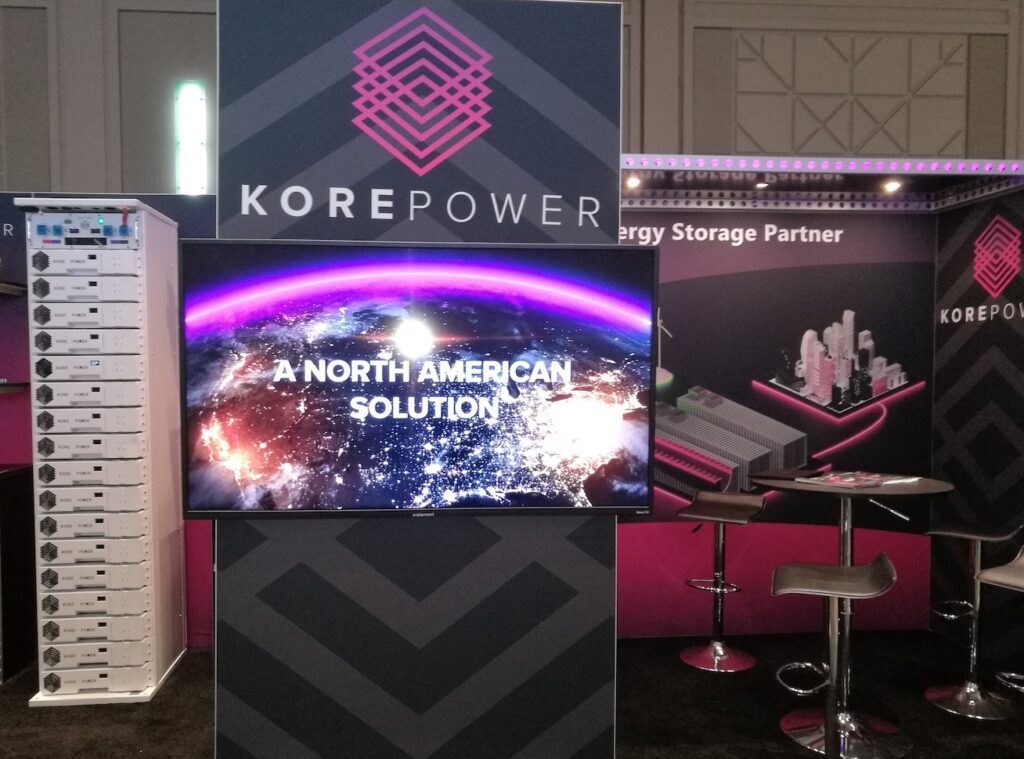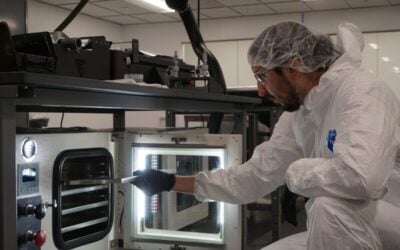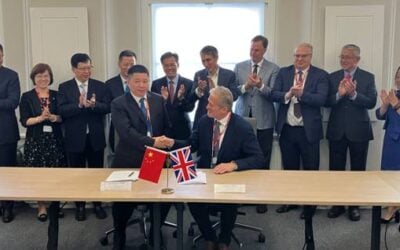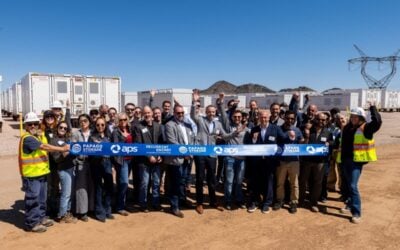
A 214 acre site which will host a battery cell gigafactory in Arizona, US, has been acquired by KORE Power.
The company’s CEO told Energy-Storage.news that with the construction of the 12GWh annual production capacity facility adding to a ramp up of its existing factory in China, KORE Power will have 18GWh of total production capacity by the end of 2024.
Enjoy 12 months of exclusive analysis
- Regular insight and analysis of the industry’s biggest developments
- In-depth interviews with the industry’s leading figures
- Annual digital subscription to the PV Tech Power journal
- Discounts on Solar Media’s portfolio of events, in-person and virtual
The US-headquartered battery cell manufacturer is targeting both electric vehicle (EV) and energy storage system (ESS) markets. It currently produces both lithium iron phosphate (LFP) and nickel manganese cobalt (NMC) cells from a factory in China and assembles ESS solutions with its partners.
Having signalled its intent early on to establish manufacturing capabilities in its homeland, in July 2021 KORE Power said it had selected the site in Buckeye in Arizona’s Maricopa County.
Added to the increase in capacity of its China factory from 2GWh to 6GWh, CEO Lindsay Gorrill told Energy-Storage.news in an interview that the company is “only a couple of years away” from having 18GWh of annual capacity available to transport and stationary energy storage market customers.
An expected date for getting the Buckeye plant operational in Q2 2023 has been pushed back to 2024, but this has come with an increase of its planned size from 1 million square feet to 2 million, with construction expected to begin this summer. The plant, dubbed the KOREPlex, will be part of the City of Buckeye’s planned ‘Sustainable Valley,’ to which it hopes to attract companies working in the full clean energy and cleantech ecosystem.
“What’s critical is that all of the market, all the big guys, are focused on EVs, which is huge [as an opportunity], but if you don’t build enough of the stuff that supports the grid, the EV side will never work because they can’t produce a million EVs and not change the grid. We made a conscious effort to be in both markets [EV and ESS],” Gorrill said.
KORE Power wants to have a net zero manufacturing facility, and this was behind part of the decision to choose the site it has in Arizona, where there won’t be “anything on top of the roof except solar panels”.
“The idea is that we’re going to create enough energy with solar and our own storage that we’re building to run the plant and create extra energy for the grid,” Gorrill said, adding that tie-ups with recycling companies will be made to add a circular, holistic value chain around the company’s production.
KORE Power is targeting a high level of vertical integration, having recently acquired an ESS system integrator, Northern Reliability (NRI), to form a new business division, KORE Solutions, which will be the company’s own system integrator arm. It signed a deal in January with NOVONIX, a supplier of graphite anodes, which is investing into KORE Power and becoming its exclusive supplier of the vital material.
While the US is now racing to catch up with China, South Korea, Japan and to a lesser extent Europe in establishing manufacturing of lithium batteries, practically none of the committed new capacity additions are known to be specifically for ESS.
In addition to the fact that nearly all of the US-made cells and packs are likely to be serving the EV industry first and foremost, KORE Power is also an extremely rare example of a US-headquartered or owned battery maker, besides Tesla, to be building gigawatt-scale manufacturing.
Recently, a startup called American Battery Factory (ABF) said it wants to establish LFP cell production in the US that could target the ESS market, with its CEO claiming in an interview that a 3GWh site could be up and running within two years. ABF wants to establish a “network” of factories, CEO Paul Charles told this site in March.
Also announced in the past few weeks was a gigafactory in West Virginia which will serve the stationary energy storage market, from another US startup, called SPARKZ. SPARKZ will make cobalt-free, solid state lithium batteries using technology that it has developed from the factory, the expected size or production capacity of which is yet to be disclosed.






